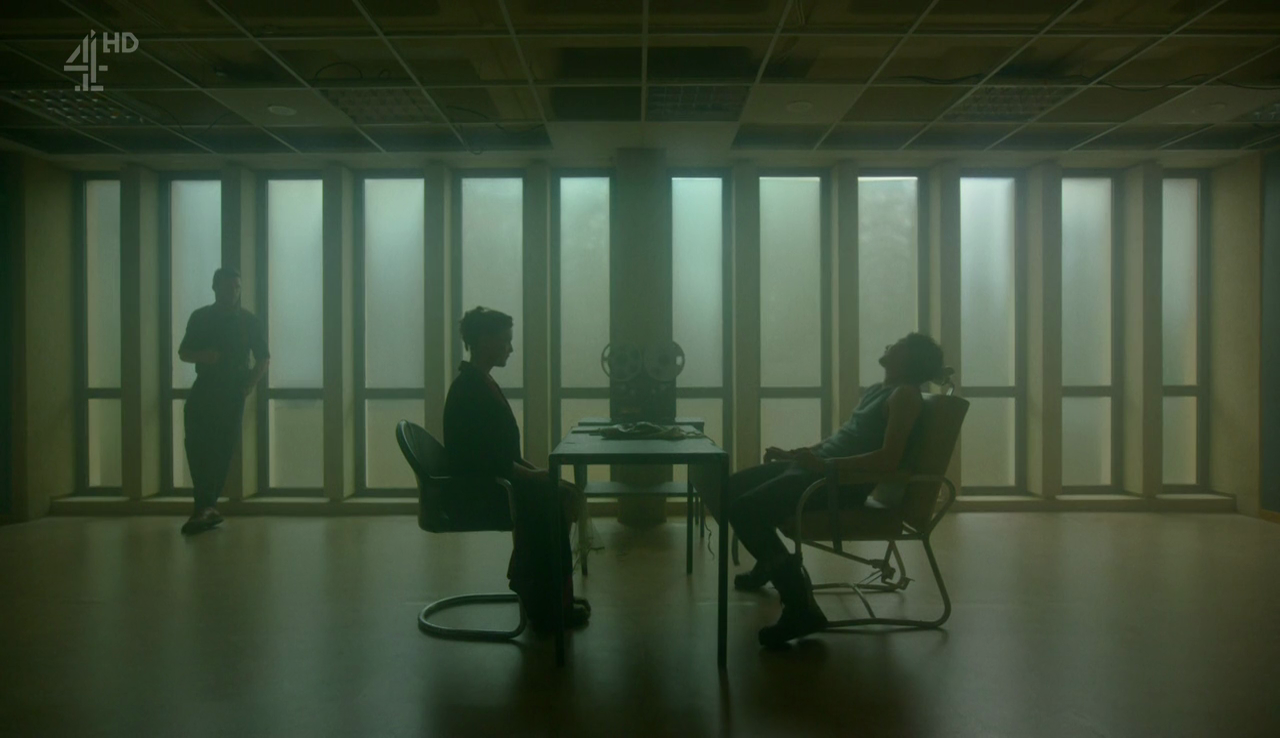BBC’s ‘Philip K. Dick’s Electric Dreams’ Doesn’t Compare to ‘Black Mirror’

Credit to Author: Matthew Gault| Date: Wed, 27 Sep 2017 12:00:00 +0000
Warning: This post contains heavy spoilers for the first episode of ‘Philip K. Dick’s Electric Dreams’
In a future populated by psychic humans, no one will have privacy. Least of all the telepaths. Science fiction pioneer Philip K. Dick imagined just such a world in 1955, a world where cops use psychic spies to rip memories from criminals. A world where only people with special hoods can block out the attacks, but the government and the telepaths are doing their best to shut down the hood maker, the world’s ultimate cryptographer.
This world is part of the BBC 4’s new Sunday night show Philip K. Dick’s Electric Dreams. It’s an anthology program in the vein of Black Mirror. This is an attempt to replace Black Mirror creator Charlie Brooker’s seminal show, which the network lost to Netflix. Dick’s work has inspired dozens of films and television shows and many of the ideas in Brooker’s Black Mirror have their intellectual roots in Dick’s work, so it makes sense for BBC 4 to return to the source.
In the first episode, “The Hood Maker,” the show presents us with a future that is clearly commenting on our current anxieties about online privacy and the ultimate, hotly-debated technology that insures it: encryption, or “crypto.” Telepaths—or teeps as they’re referred to derogatorily—are able to see what everyone is thinking, unless the subject has one of these contraband hoods, which blocks their all seeing eyes.
“In the old world, I remember how we fretted about the computer,” the hood maker tells protagonist Ross in a final confrontation. “The Web. The information on everyone and everything. We built firewalls and encrypted our lives. I always thought it was an overreaction. There was a plug, pull it out, poof.”
“Yeah, but teeps don’t have a plug,” Ross says.
“The [government] wanted a safeguard, which is what I was developing,” Cutter says. “They wanted this firewall for themselves, but it’s too important. Protection should be democratic. So should knowledge.”
“These things are power,” Ross retorts. “You can’t hand that kind of power to anyone.”
“Why not, we had the sanctity of our own thoughts before the teeps,” Cutter says. “Our minds are the only free, independent states in existence.”
It’s as if we’re watching a modern internet privacy advocate argue with a Silicon Valley libertarian who believes that people with nothing to hide shouldn’t be afraid of living in a fully transparent society. Detective Ross even makes that exact argument earlier in the episode. But he’s a hypocrite. Thanks to a genetic mutation, the telepaths can’t read him at all so he never has to worry about his secrets getting out. He’s arguing from a place of privilege.
The fight over the hoods and the power it represents doesn’t affect Ross because he has his own genetic mutation—the teeps can’t read him. He constantly tells everyone he’s an open book with nothing to hide, but he can only do that because he has this innate gift for privacy.
The show repeatedly beats the audience with it’s message that everyone has the right to keep some things private and that increased access to encryption—or hoods—must be democratic. It’s a problem we’re facing in America right now, where the FBI has had trouble accessing encrypted devices and former director James Comey speculated that a law against encryption may soon move through the legislature.
BBC 4’s attempt to recapture the magic of Black Mirror using Dick’s stories is mixed. “The Hood Maker” isn’t a strong first showing, but it’s much better than bad adaptations such as Paycheck and The Adjustment Bureau . Black Mirror is great at addressing society’s current fears and anxieties, few programs reflect the terror of the present moment so well. Electric Dreams wants to do that, but falls a little short.
The writers of Electric Dreams based “The Hood Maker” an eighteen-page short story from 1955 of the same name. As much as the modern world has grown to resemble Dick’s worst nightmares, adapting one of his 60-year-old short stories requires some careful interpretation and transposition of modern problems of personal privacy and the power of cryptography onto an old tale.
It’s a clumsy patch job, pulling modern problems over an old Dick story. It doesn’t quite work, but it’s still entertaining. It’s also a nice stand-in while we wait for Black Mirror season four to premiere.
Philip K. Dick’s Electric Dreams airs Sunday nights in the UK and will come to Amazon Prime after it’s finished airing.